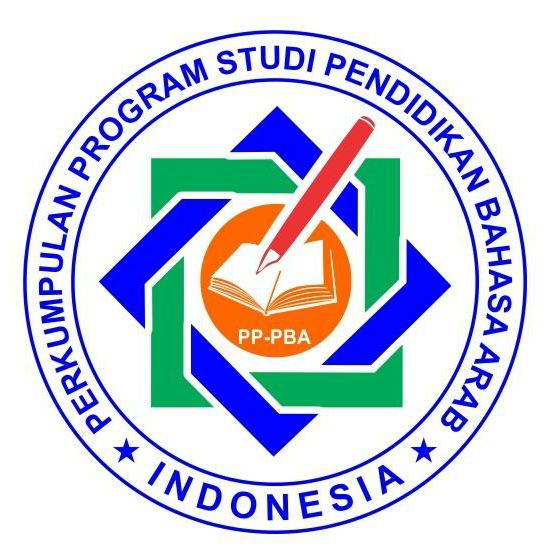Khuṭwah fī Taisir Dalālah al-I’rab ligairi al-Nāṭiqīn bi al-’Arabiyyah
DOI:
https://doi.org/10.37680/aphorisme.v5i1.4848Keywords:
Parsing, Grammar, Subject, Parsing of the Qur’anAbstract
No other nation has been subjected to the same type of attack and harsh criticism as it has been subjected to Arabic. Many campaigns have been launched against it, some of which were unjust, based on no basis, and offering nothing but insult. Others included suggestions that were closer to demolition than to construction, while others included suggestions that were closer to demolition than construction. There are calls that did not aim at deficiency or destruction, but rather included partial suggestions that were not organized in the entire way and did not aim to draw an alternative to it, so they did not rise to the level of comprehensive scientific attempts. Many of our distinguished teachers - may God have mercy on them - have written in the field of facilitating grammar, and the most beautiful person who spoke and wrote about it is Dr. Ahmed Abdel Sattar Al-Jawari in his book (Towards Facilitation) when he presented and classified the problem, saying: ((Arabic grammar remains difficult for its people, not easy, bumpy, and not paved). It deviates to what is intended, it is not devoid of complexity and is not free from deviation, and this method is still the subject of complaint from teachers and learners alike. They begin it and hardly reach a goal or reach an end from it, and they delve into an abundant future that has no beginning or end. They know its extent but do not realize its end. The more they expand into it, the more its scope expands before them, and its paths become more complex, so the means distract them from the goal). So we tried to present a simple and accessible idea, which was the result of years of repeating the same experiment. Then I took various questionnaires from the students (in that this work raised their level of application in how to know the locations of words and then parse them), so it demonstrated the acceptance of this idea - which is our current research - and carried it with significance. Seriously, until it became a step in the scale of controlling the rule of parsing by controlling the movement it is an education for non-Arabic speakers.
References
بدون اسم المؤلف. (2010). موضوعات في نظرية النحو العربي، دراسات موازنة بين القديم والحديث (الطبعة الأولى). دار الزمان.
الجواري، ا. ع. س. (1984). نحو التيسير (الطبعة الثانية). مطبعة المجمع العلمي العراقي.
خليفة، ج. (د.ت). نحو عربية أفضل. دار مكتبة الحياة.
الدرة، م. ع. ط. (2009). تفسير القرآن الكريم واعرابه وبيانه (الطبعة الأولى). دار ابن كثير.
زيدان، ع. ف. (2009). دراسات في النحو القرآني (الطبعة الأولى). مكتبة الجيل العربي.
الزيدي، ك. (2003). دراسات نقدية في اللغة والنحو (الطبعة الأولى). دار اسامة.
السامرائي، إ. (د.ت). النحو العربي نقد وبناء. دار الصادق.
صالح، ب. ع. (1998). الإعراب المفصل لكتاب الله المرتل (الطبعة الثانية). دار الفكر.
الصغير، م. ح. ع. (د.ت). نحو التجديد في دراسات الدكتور الجواري.
ضيف، ش. (1990). تيسيرات لغوية. دار المعارف.
العزاوي، ن. ر. (2011). في حركة تجديد النحو وتيسيره في العصر الحديث (الطبعة الأولى). مكتبة اللغة العربية.
الفيصل، س. ر. (2010). قضايا اللغة العربية في العصر الحديث. الهيئة العامة السورية للكتاب.
المخزومي، م. (1986). في النحو العربي نقد وتوجيه (الطبعة الثانية). دار الرائد العربي.
المعري، ش. (2006). قراءات معاصرة في تيسير النحو العربي. اتحاد الكتاب العرب.
يعقوب، ا. ب. (2009). من قضايا النحو واللغة (الطبعة الأولى). الدار العربية للموسوعات.
Downloads
Published
Issue
Section
License
Authors who publish with this journal agree to the following terms:
Authors retain copyright and grant the journal right of first publication with the work simultaneously licensed under a Creative Commons Attribution-NonCommercial 4.0 International License that allows others to share the work with an acknowledgement of the work's authorship and initial publication in this journal.
Authors are able to enter into separate, additional contractual arrangements for the non-exclusive distribution of the journal's published version of the work (e.g., post it to an institutional repository or publish it in a book), with an acknowledgement of its initial publication in this journal.
Authors are permitted and encouraged to post their work online (e.g., in institutional repositories or on their website) prior to and during the submission process, as it can lead to productive exchanges, as well as earlier and greater citation of published work.




.jpg)


